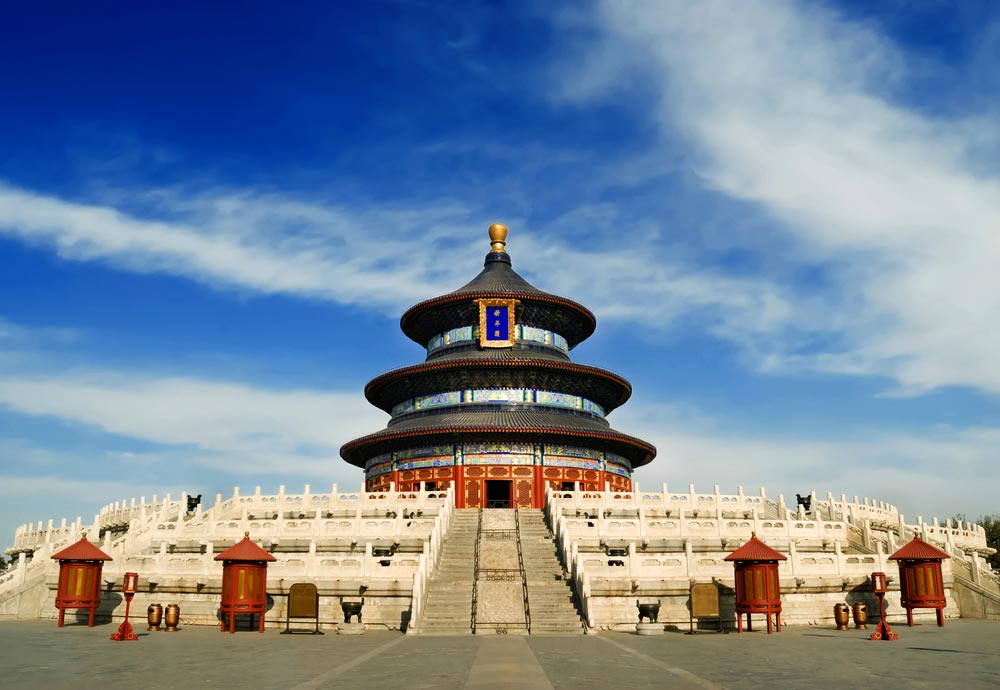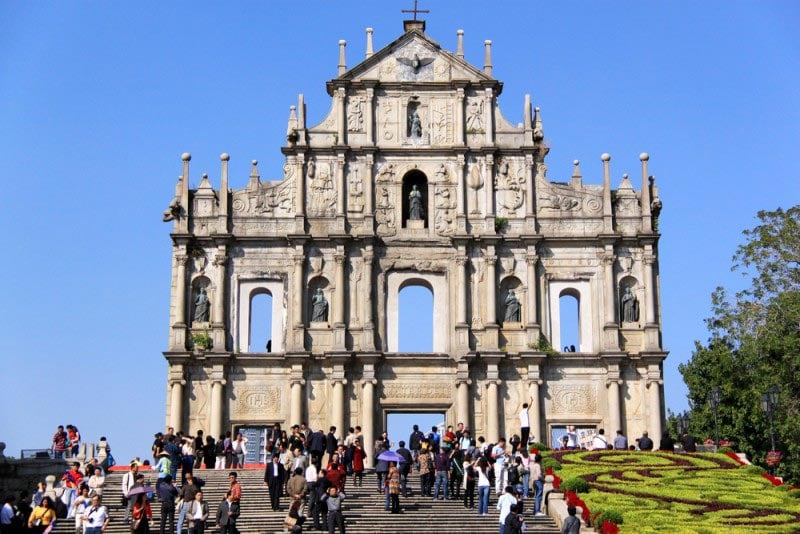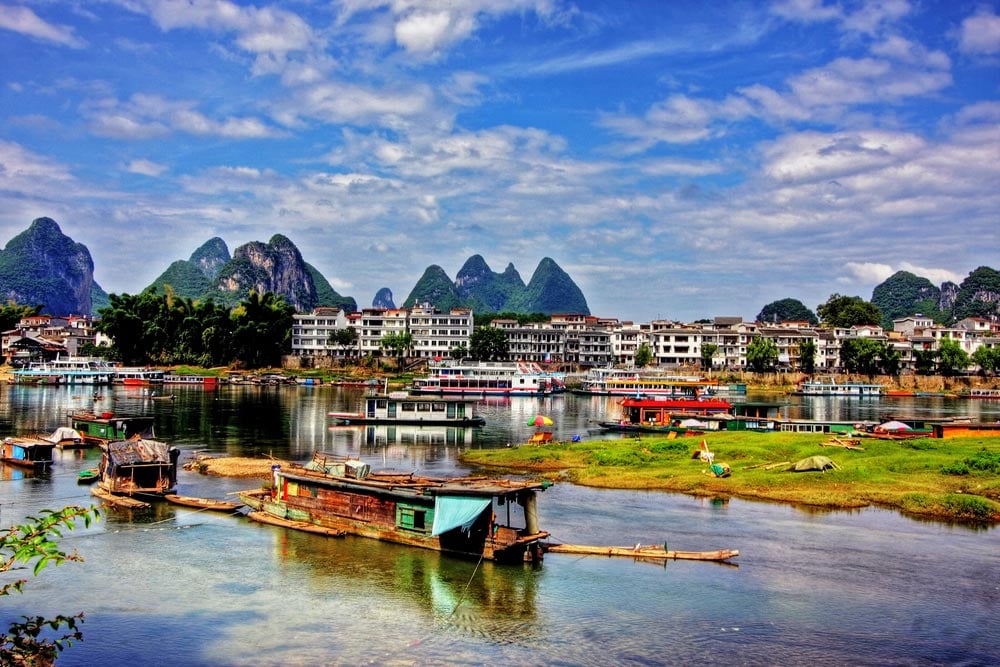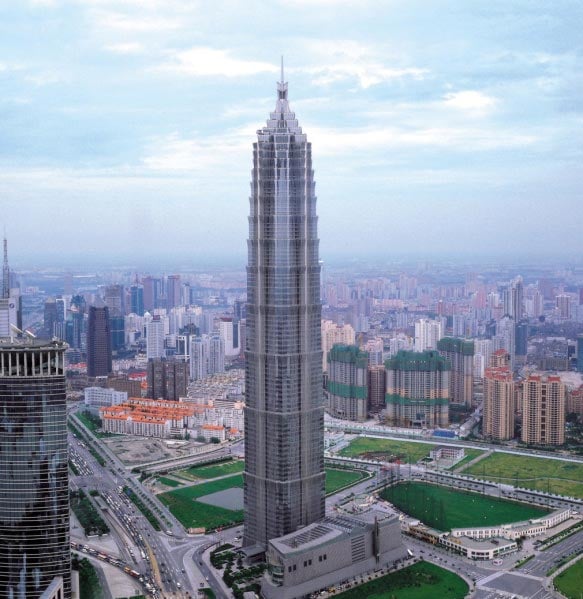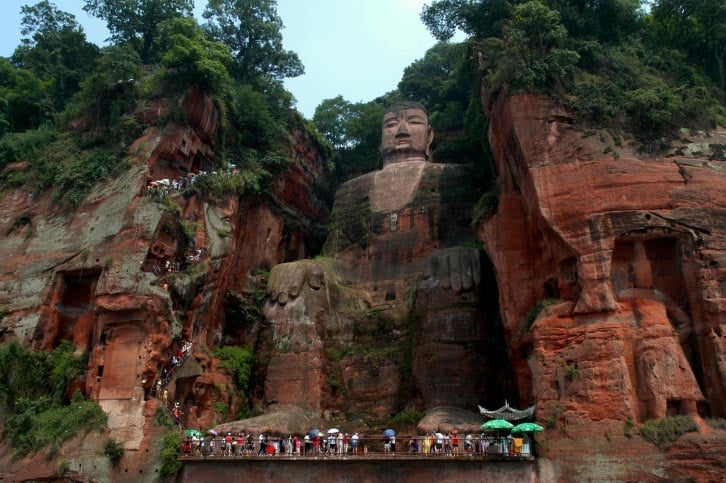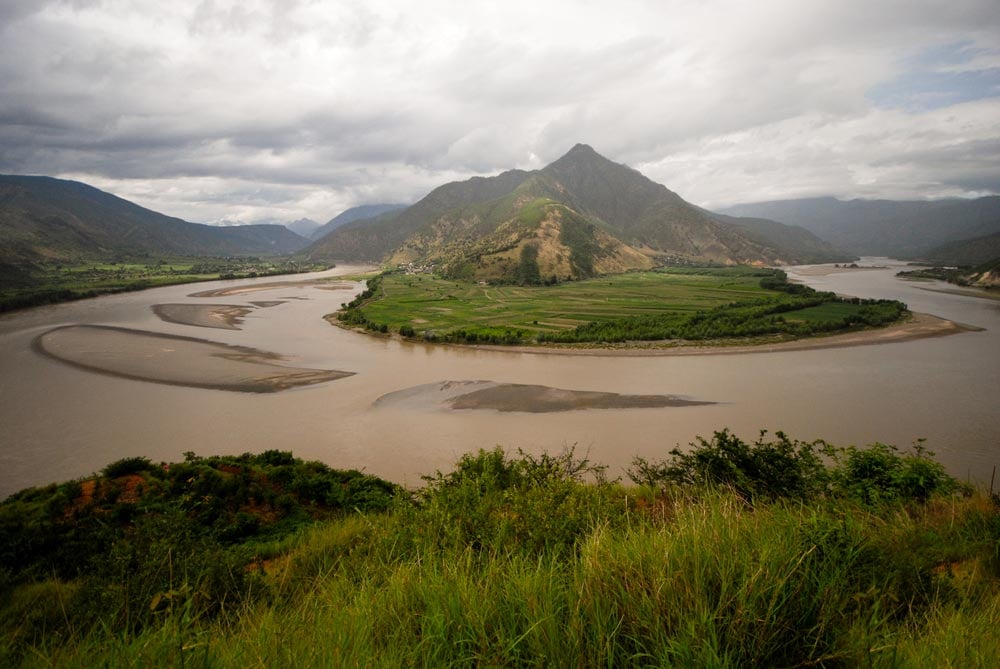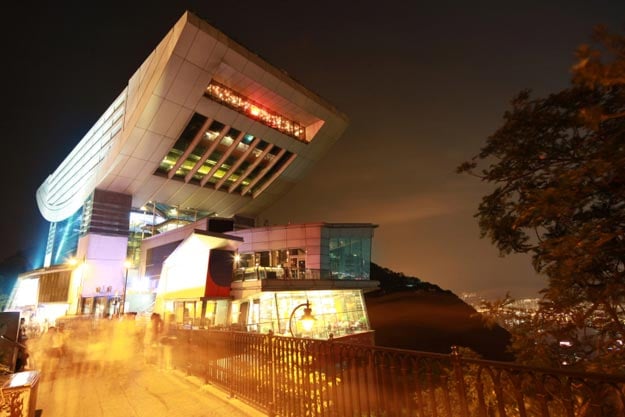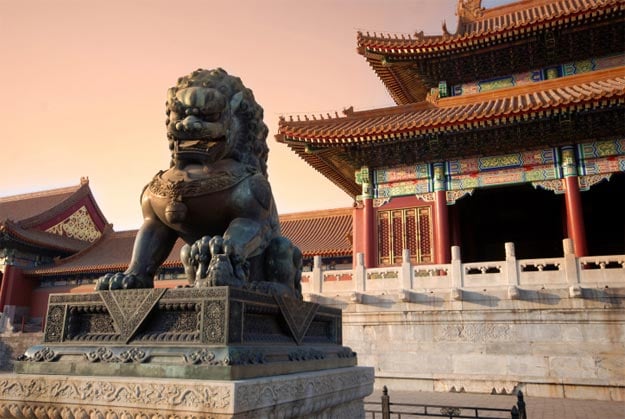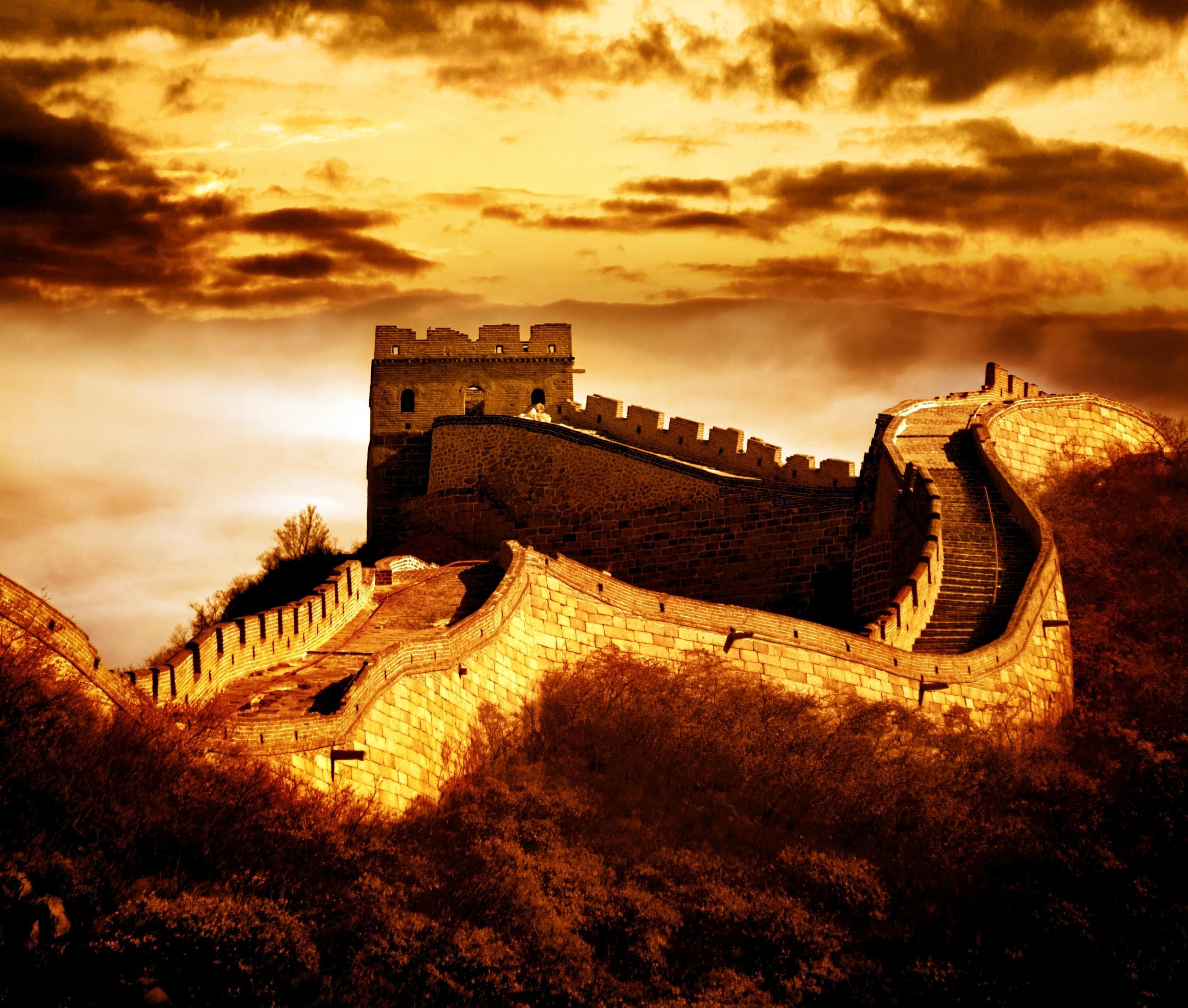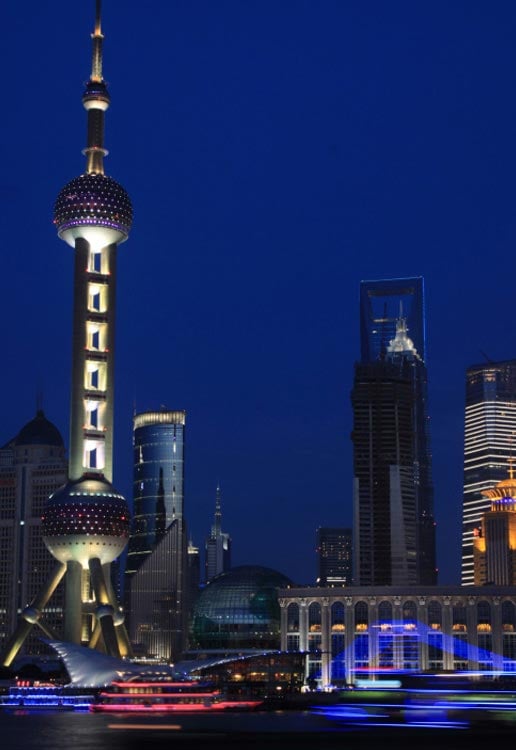Dujiangyan is an irrigation system built around 256 BC by the Qin Dynasty in China. The infrastructure was built during the Warring States Period, though construction continued throughout the Tang, Song, Yuan, and Ming dynasties. The various dynasties worked to enlarge and modify the irrigation system.
Located in the Min River in China, the irrigation system was very advanced for its time and is still used today, irrigating 5,300 square kilometers (2,046 square miles) of land, supplying water to the Chengdu plains.
The Dujiangyan system, along with the Zhengguo Canal (in Shaanxi Province) and Lingqu Canal (in Guangxi Province) are together known as the three great hydraulic engineering projects of the Qin Dynasty. Dujiangyan is considered a feat of engineering, utilizing the natural geography and water features to divert water, drain sediment, and regulate flood and flow control. The system uses no dams, making it a place of interest for scientists as well, as it allows fish to flow freely down the river.
The main constructions of the Dujiangyan system include the Yuzui Bypass Dike, the Feishayan Floodgate, and the Baopingkou Diversion Passage. Yuzui, also known as the Fish Mouth Levee, is the irrigation head, resembling a fish mouth. This portion prevents floods by dividing the river into inner and outer streams. The inner stream carries about 60% of the flow normally, but during floods, it carries 40% to protect the surrounding lands. Feishayan, or the Flying Sand Weir is a 200-meter (656 feet) wide opening, connecting the inner and outer streams. This allows a natural flow of water to drain out excess water from the inner stream. Baopingkou, or the Bottle-Neck Channel, transports water through the mountain.
The Anlan Suspension Bridge spans the river and connects the island to both banks, and is known as one of the “Five Ancient Bridges of China.” Temple sites along the banks include Two Kings Temple (Erwang) and Dragon-Taming Temple (Fulonguan).
Dujiangyan Irrigation System Map
Facts about Dujiangyan Irrigation System
- Dujiangyan Irrigation System was built around 256 BC by the Qin Dynasty.
- Weir Works controls the water from the upper river valley, an altitude of 726 meters (2381 feet), and is located about 1 kilometer from Duijangyan City.
- Dujiangyan became a UNESCO World Heritage Site in 2000, noted for its technology which was far ahead of its time.
Where is Dujiangyan Irrigation System ?
Dujiangyan Irrigation System is located in the Min River, which is in the Sichuan Province of China. Dujiangyan is situated about 58 kilometers (36 miles) from the capital, Chengdu. The area is connected by public transportation including trains and buses, as well as roads including a highway system and boat system.
Best time to visit Dujiangyan Irrigation System
Good months to visit are April, May, and October, which have mild weather. July and August are not suggested visiting times because of the weather, with both high heat and heavy rains.
Nearby Attractions: Mount Qincheng, Dazu Rock Carvings, Mount Emei, Leshan Giant Buddha, Sichuan Giant Panda Sanctuaries
Photo By Tkotc (Own work) [CC-BY-SA-3.0], via Wikimedia Commons

